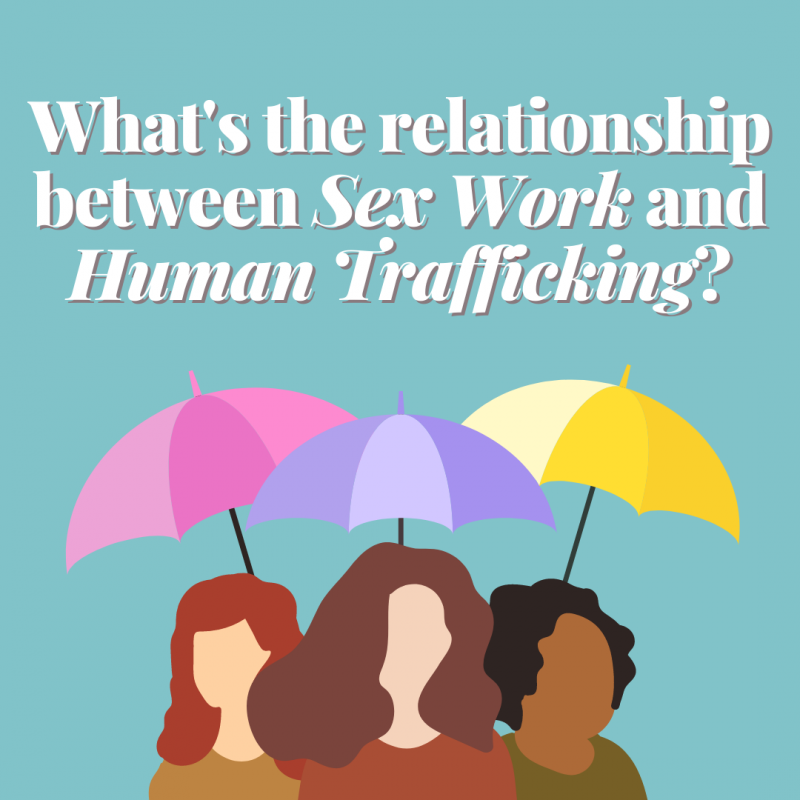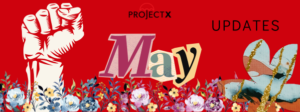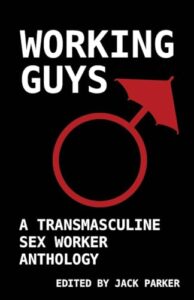Modern discourses surrounding sex work and its morality, exploitation and regulation are still viewed in black and white terms and simplistic assumptions. Historically, international conventions have conflated sex work and trafficking into the sex industry, viewing the industry as inherently exploitative when shaping law, policies and practice. In Singapore, the association of criminality, guilt and penalties with individuals who enter the local sex industry have created a clear separation between voluntary sex work and sex trafficking.
On one hand, sex workers are seen as helpless victims. On the other hand, they are seen as immoral criminals. In this post, we discuss the relationship between sex work and sex trafficking, alluding to narratives that consistently blur the lines between those deserving of protection and condemnation, and how we can do better.
What is sex work?
Coined by Carol Leigh in 1987, ‘sex work’ is the consensual and voluntary exchange of sexual services, either regularly or sporadically, for money or other resources of value. It is an income-generating activity encompassing diverse settings and forms, including brothels, street-based and online platforms, private homes, escort services and video camera work, among many others. Aside from securing their livelihoods, sex work can be an expression of bodily autonomy and agency.
Conflating sex work and human trafficking
From 1949, the Convention for the Suppression of the Traffic in Person and of the Exploitation of the Prostitution of Others served as the primary international legal instrument governing human trafficking. However, it positioned women as vulnerable human beings in need of protection from the “evils of prostitution”, and any movement of women across borders constituted a trafficking crime, irrespective of individual consent. In the intervening decades, radical feminist ideologies continued to construct sex workers as victims of patriarchal oppression, observed in 1979 when the Convention on the Elimination of all Forms of Discrimination against Women called for eliminating exploitation of women by prostitution, without defining exploitation. The conflation of sex work and exploitation failed to address the complex realities of trafficking in persons.
Despite the UN TIP Protocol in 2000 marking an inclusive shift by defining other forms of trafficking for labour, international laws have situated trafficking as an offense for stricter criminalisation and prosecution of involved parties. To impede trafficking, countries have enacted various repressive bills to criminalise women selling sex, end demand for commercial sex and restrict women’s global labour mobility.
Confusing sex work with trafficking is harmful!
In July 2021, the International Women’s Rights Action Watch Asia Pacific (IWRAW-AP) collaborated with the Asia Pacific Network of Sex Workers to feature sex workers’ rights activists from South and Southeast Asia, who described their experiences and perspectives on the dangers of conflating sex work with human trafficking.
Some negative impacts of confusing sex work as trafficking include:
- ‘Rescue’ initiatives and indiscriminate raids do not effectively identify victims of trafficking, yet often expose people in the industry to arbitrary detention, deportation or imprisonment.
- The criminalisation of sex workers heightens their vulnerability to exploitation, facilitates an invasion of privacy and confiscation of personal property.
- Driving the industry underground risks sex workers’ sexual health, emotional and physical safety and decreases NGOs’ access to provide social services.
- Discriminatory immigration laws and visa conditions creates dangerous working conditions, increased stigma and discrimination, and violence against sex workers.
Sex workers should not be seen as helpless victims or immoral criminals, but as workers with rights to labour, health and social protection that should be respected and fulfilled.
A look at Human Trafficking in Singapore
Enacted in 2015, Section 3(1) of Singapore’s Prevention of Human Trafficking Act states that trafficking is committed when a person recruits, transfers, harbours or receives an individual by means of:
- threat or use of force, or any form of coercion;
- abduction;
- fraud or deception;
- abuse of power;
- abuse of an individual’s vulnerability; or
- the use of bribery
In addition, the Women’s Charter criminalizes “forced prostitution” that involves detention or physical force, and the movement of women and girls for “trafficking”.
Singapore acceded to the UN TIP Protocol in 2015 and maintained Tier 1 ranking in the TIP 2021 Report for its efforts in tackling human trafficking. As of May 2021, only 6 sex trafficking cases and 1 labour trafficking case have been convicted.
Despite hosting approximately 1.2 million migrant workers, investigations of alleged sex trafficking cases still outnumber labour trafficking cases – why is this so? In many ways, migrants trafficked to Singapore and exploited for labour in the sex industry, domestic, hospitality, manufacturing and construction sectors can have strikingly similar stories. They can often involve deceptive agents and familial brokers, limited economic and social mobility, restricted freedom of movement, and experience varying degrees of physical, financial, emotional and sexual violence at their workplace.
What does this mean for sex workers?
Often attributed to Singapore’s vice management strategy, raids of pop-up brothels in rental flats, KTVs and massage parlours, shutting down online advertisements and erotic services platforms dominate our media. These images construct sex workers as criminals who are deserving of their plight and mask their struggles. While stories of sex trafficking are low in Singapore, vulnerabilities faced by victims of trafficking and consenting sex workers can overlap, albeit to a smaller extent.
Lived realities demonstrate that there is no straightforward mapping of agency and consent. We need to ensure that sex workers are involved in anti-trafficking work and possess labour rights to prevent becoming trafficked.
Support sex workers to end human trafficking
Sex worker collectives can tackle exploitation and trafficking in the sex industry in creative and resourceful ways that prevents further harm to those in vulnerable situations. In West Bengal, India, the Durbar Mahila Samanwaya Committee (Durbar) formed community-led self-regulatory boards (SRB), each comprising of sex workers, survivors of sex trafficking, local councilors, doctors and lawyers, and voluntary community leaders. In 30 red-light districts, they speak to new entrants about their motivations and needs, relationship with brothel owners, employers and landlords. When an individual is identified as trafficked or coerced into sex work, the SRB arranges their return or transition into other job opportunities. Some of their key programs include arranging social security schemes, child protection mechanisms and ensuring sex workers’ children have access to education, vocational training for those who decide to leave the industry, and raising awareness against violence and abuse by law enforcement agencies. From 2001 to 2019, the DMSC identified and reintegrated 1090 minors and unwilling women.
Moving forward
Everyone can form their own opinion on whether sex work is a choice, or always an exploitative path that individuals are forced into, but parallel to this debate, we should reduce stigma and provide non-judgemental support for those in the industry. Current narratives that shape public perceptions of sex work remain incomplete and misleading about the nature, causes and prevention of trafficking, and discard discussions on structural reforms to improve living and work conditions of sex workers. Project X believes that prioritizing the safety, dignity and agency of sex workers is a positive step to institutionalise labour rights and counter the harms of anti-trafficking measures.
References
- Global Alliance Against Traffic in Women, 2018. Sex Workers Organising for Change: Self-representation, community mobilisation, and working conditions.
- Global Network of Sex Work Projects, 2012. Briefing Paper #3: Sex work is not trafficking.
- The Straits Times, 2021. Man admits to recruiting girl, 13, for sexual exploitation.
- U.S. Department of State, 2021. 2021 Trafficking in Persons Report: Singapore.
- Yale Global Health Justice Partnership, 2020. Sex work vs trafficking: how they are different and why it matters.
- Sallie Yea, 2015. Trafficked Enough? Missing Bodies, Migrant Labour Exploitation, and the Classification of Trafficking Victims in Singapore.
- Singapore Statutes Online. Prevention of Human Trafficking Act 2014.
- Lucrecia Rubio Grundell, 2015. Silencing the challenging voices of the global ‘subalterns’ in anti-trafficking discourse.
- Ministry of Home Affairs, 2021. Written Reply to Parliamentary Questions on Matters Related to Human Trafficking, By Mr K Shanmugam, Minister for Home Affairs and Minister for Law.
- Jaffer Latief Najar, 2021. Community self-regulation of the sex industry: a bottom-up approach for fighting sex trafficking in India.
- Erin O’Brien, 2016. Human Trafficking Heroes and Villains: Representing the Problem in Anti-Trafficking Awareness Campaigns.
- Maria De Angelis, 2017. Narratives of Human Trafficking: Ways of Seeing and Not Seeing the Real Survivors and Stories.






